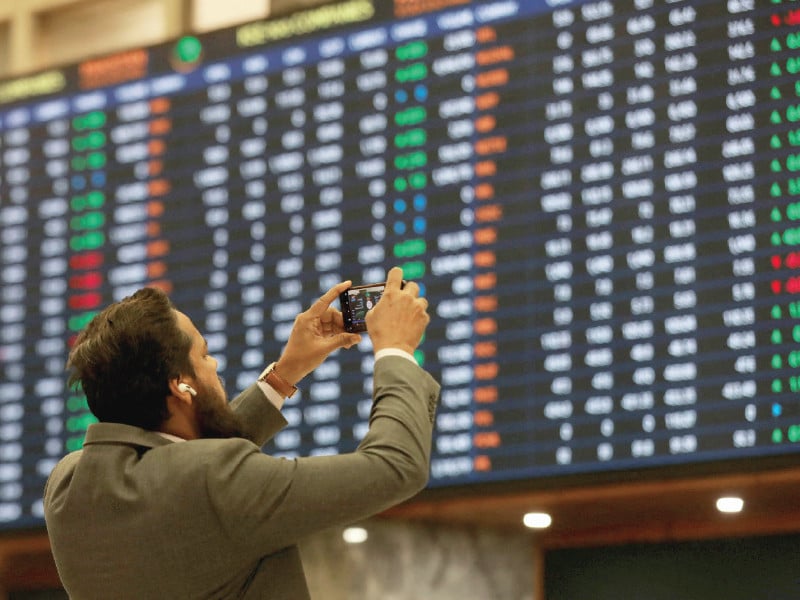KARACHI:
If you are a determined member of the stock market’s “Technical Analysts Club,” it may not be very important for you to understand why the market acts the way it does. Instead, focus on going with the flow and the trend to make sure you get your fair share of the money.

Surprisingly, even investors in the respected “Fundamental Camp” would probably agree that the current rally was overdue; the reason why is less important than the time.
Now that the market has broken out of a channel that had been in place for ten years, investors are naturally wondering how long the rise will last now that they are making money after such a long time of losing money. Since the KSE-100 index is in uncharted territory, it makes us think about what has been driving the current rally and whether it has the momentum to keep going.
The current rise at the Pakistan Stock Exchange (PSX) is caused by a number of things, such as falling inflation rates, the possibility of an IMF deal, and news of possible foreign investment, such as from Saudi Arabia.
On the other hand, the slowdown in the economy, the sharp drop in large-scale manufacturing output, and the rise in unemployment will make people less optimistic about key volatile sectors like chemicals, cement, and consumer goods.
The recent drop in inflation has made it more likely that the State Bank will take a less strict stance on policy. Lower interest rates make it cheaper to borrow money, which makes companies more likely to spend and grow, which can be good for stock prices.
But as interest rates go down, banks’ net interest margins go down. Banks have been enjoying the high interest rate situation so far, as shown by their recent filings and stock performance. When prices of money go down, the bottom lines of industries with a lot of debt, like cement and steel, will get better.
Also, the possibility of an IMF deal has made investors more confident. Pakistan is in active talks with the IMF to get a new loan plan. They want to get important financial help and make the economy more stable.
A good outcome from these talks could provide some comfort, possibly keeping the country’s dollar stocks stable. It’s still not clear if this agreement with the IMF will make it easier to borrow money from other sources and give other lenders trust in the country’s long-term stability.
Even so, it’s important to remember that the new plan is likely to start with stricter rules and more work than usual.
Additionally, news of possible foreign investments from Saudi Arabia has added to the stock market’s upward trend. Some of the most important parts of Pakistan’s economy that Saudi Arabia wants to spend in are energy, infrastructure, and agriculture.
Pakistan’s economy will benefit from this investment, and it also shows that people have faith in the country’s future growth.
However, since the visit of Saudi Crown Prince Mohammed bin Salman was recently pushed back, both local and foreign investors are being extra careful. They are keeping a close eye on any major progress on the many memorandums of understanding (MoUs) that have already been signed.
Finally, once more the usual hard work of stock market analysts shines through! They are very good at explaining why their long-term predictions haven’t come true over the years, whether it’s about index goals or specific stocks.
But, look at that! Now that the KSE-100 index has risen above 75,000, the newly sprung stock experts on social media and sell-side analysts are quick to come up with new numbers to ensure investors that the party is still going strong. Isn’t it classic?
People who are new to investing on their own, especially those who just recently went into the market to see what all the fuss is about, need to be very careful.
It can be exciting to learn how to get rich quick or follow the tips for technical charts, but small investors should also think about fundamental and macroeconomic factors. Aligning financial choices with the bigger picture of the market can help lower risks and help you make smarter decisions.
The author is interested in Pakistan’s stocks, commodities, and new technologies and is a fan of the financial market.










































